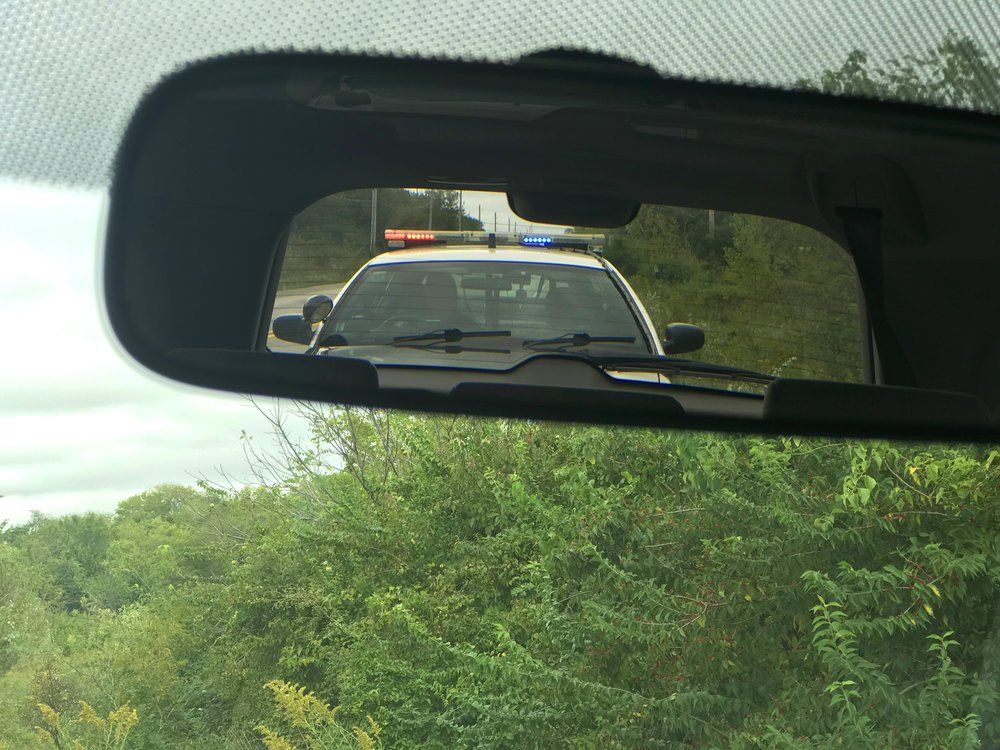What to do if I get pulled over by police?
Remain Silent
Getting pulled over by a police officer is a challenging time.
Your heart may beat uncontrollably and your mind may suddenly go blank.
What am I supposed to do if I get pulled over?
- Do not try to run away. Police officers are very good at catching people who flee. You would get a larger consequence once they catch you. Just remain calm and actually pull over to a safe location.
- Cooperate with giving the police officer some basic information about you and your vehicle. You are required to give your name, license, insurance information, and vehicle registration. Ben Padgett Law recommends cooperating with police officers when giving information to identify yourself and your vehicle.
- Watch for open-ended questions. Open-ended questions are questions that do not have an easy “yes” or “no” answer and they are meant for you to tell a story or give a long answer. Example: “Where are you going to?”
Ben Padgett Law has worked with many types of cases from accident to DUI to felony criminal cases. This advice is for any time you have an interaction with police, such as after an accident or in a potential arrest.
REMEMBER: You have a right to remain silent.
When a police officer asks “Have you been drinking?”, you DO NOT have to answer that question. As a law firm, if you can remember anything during the intense emotions during an accident or getting pulled over, we BEG you to PLEASE STAY SILENT. Don’t say anything! If you can calmly speak, say “I cannot answer questions.”
Sometimes, as humans, we just want to talk. When you’re being questioned by police, this is NOT the time to chat and try to connect or catch up with a friend. The police officer is not there to listen or understand your side of the story. It is NOT your job to explain your side of what happened and why you are innocent to the police officer. PLEASE REMAIN SILENT. Fighting with police, saying too much, or confessing to committing a crime will only hurt you. We have seen many people hurt themselves and their legal case by choosing the wrong time to talk.
What should you say to police officers?
Example: If the Police Officer is investigating an accident
and asks: “Did you hit the other car?”
When Answering: Do Not lie. If possible, do NOT admit fault if you caused the accident.
Example:
If the Police Officer is investigating a criminal
action and asks: "¿Do you have drugs in your car?"
When Answering, say: "I exercise my right to remain silent and I want to speak with a lawyer."
Yes, your lawyer is your true friend in these situations. You can tell Ben Padgett Law ALL the details about what happened. You can explain your side of the story. You can have the confidence to know that whatever you tell Ben Padgett Law will remain private between you and Ben Padgett Law due to Attorney-Client privileges. We will listen and then start to build a defensive strategy to help solve your problem, whether it’s a car accident or a criminal charge.
There’s a funny movie called Liar Liar
that teaches us what we should NOT do. The main character has been put under a magic spell that forbids him to lie. He cannot tell a lie. So, when he is pulled over by police, he makes a BIG mistake by confessing all his crimes to the police officer. It’s funny to watch in a movie. Do NOT do this in real life.
---
Movie Quote Bank. “Liar Liar Movie Quote – Pulled over scene.”
Online video clip. YouTube. YouTube, 23 May 2016. Web. 29 October 2020.
---
At Ben Padgett Law, we have seen normally very smart and calm people do exactly what this movie character does when they are under the stress of talking to police. Unfortunately, the judge in court was not very "gentle." Unfortunately, in the case of a car accident, the insurance company did not want to pay for the accident damages, leaving the injured person stuck with a damaged vehicle and large medical bills. You don’t want that to be you.
REMEMBER TO REMAIN SILENT… and call Ben Padgett Law immediately. We have time-sensitive work to do to defend you and to protect your case. Do not procrastinate. Just call us.
